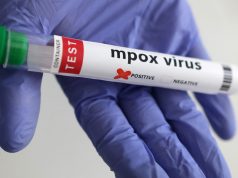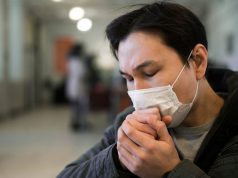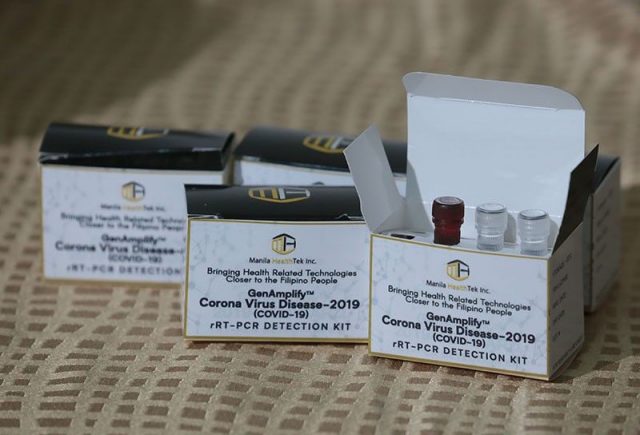
Reports that some companies and local officials are still using rapid testing to screen individuals were talked about online following the health agency’s advice against it.
In a statement on Wednesday, the Department of Health stressed that the RT-PCR (Reverse transcription polymerase chain reaction) is still the “gold standard” in detecting the deadly virus which causes COVID-19 and not the rapid antibody test (RAT) kits.
This was also indicated in the Department Memorandum 2020-0258.
On the use or Rapid Antibody-based Test Kits:The Department of Health would like to stress that antibody tests are not…
Posted by Department of Health (Philippines) on Tuesday, August 18, 2020
The agency pointed out that rapid tests are “low sensitive” to the virus and incur “high false-negative rates,” which had been the main concern of some local government officials who conducted these tests among their constituents.
“The use of rapid antibody tests is not recommended for use in screening, return-to-work decisions, entry-to-country/province policies, or for similar use due to its low sensitive and high false-negative rates, as well as uncertainties to its connection to immunity,” it said.
The DOH also cited the World Health Organization’s recommendation to use rapid tests for research purposes only.
“The World Health Organization recommends that rapid tests be used in research settings only, including for clinical decision-making, until evidence supporting use for specific indications is available,” it said.
Rapid test results still used for clearance
Under the DOH’s post on Facebook, the comments were filled with complaints that many businesses and even police officers still request for rapid test results, particularly from locally stranded individuals (LSIs) to serve as entry passes.
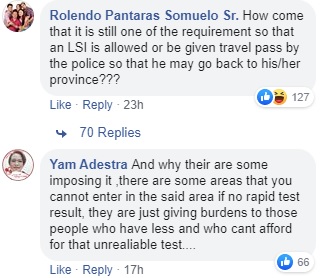
Other Filipinos demanded that health officials should cascade this information to the Inter-Agency Task Force for the Management of Emerging Infectious Diseases (IATF-EID), the local government units, health centers and even border patrol officers.
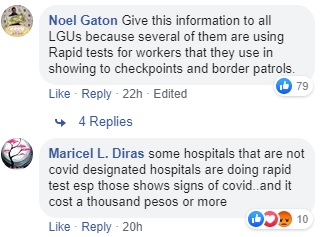
A biologist similarly suggested that it’s about time the IATF should ban the use of the controversial kits altogether.
“Perhaps it’s way past time for the IATF to issue a resolution on this? Like you know, outright ban the use RATs,” the user tweeted.
The DOH and the country’s health workers have since opposed the use of rapid tests to diagnose patients with COVID-19 because they are ineffective against preventing transmissions.
This procedure had also been blamed to cause for the surge of infections in provinces and cities across the country because of the misleading results it produces.
Some medical practitioners online, meanwhile, welcomed DOH’s new advisory, particularly in using rapid test results as passes for work.
PSA. Rapid antibody tests should NOT be used for diagnosis, return-to-work and travel entry decisions. pic.twitter.com/0FR3bFSeQR
— Jai Cabajar (@jaicabajar) August 19, 2020
FINALLY.
Rapid Tests NOT to be used for diagnosis, screening, return to work decisions, travel entry decisions.
Wag niyo na i-post yung mga negative results ng rapid tests niyo. Misleading yan 😊 pic.twitter.com/sCfnqdcWpq
— Dr. Winlove Mojica (@theskinsensei) August 19, 2020
It was last April when the IATF-EID implemented the use of rapid testing procedures as part of the national government’s “expanded targeted testing” program.
However, this was mainly conducted among LSIs, particularly overseas Filipino workers, prior to their return to their hometowns.
In May, the Palace announced that those who tested positive in the rapid tests would be required to undergo COVID-19 testing.
A recap on why it is ineffective
Since last May, during the time when the lockdown was about to be lifted, several medical groups expressed strong opposition against rapid testing as clearance for Filipinos to return to work.
In a press briefing that time, the Philippine Society of Microbiology and Infectious Diseases (PSMID) stated that based on their review, there’s no value in requiring workers to undergo antibody testing particularly for those “without symptoms, without a history of direct contact or exposure to a suspect, probable or confirmed case.”
A policy paper from the Philippine General Hospital also explained that the RAT only has 20% sensitivity or probability in detecting COVID-19.
“Among those who were eventually confirmed to have the COVID-19 based on a positive swab test, only 12/60 or 20% or 1 out of 5 were detected by the RAT,” it said.
“If we were to rely on the RAT as the screening tool, and then swab only those with positive RAT results, then we would have missed 48 out of 60 (80%) as in the table above; or 4 out of every 5 positive COVID cases!” it added.
In a virtual briefing last August 10, the DOH said that it will issue guidelines in using RATs instead of completely banning the kits in the country.
“Hindi naman kailangan i-ban kasi may gamit sya sa ating response,” Health Undersecretary Maria Rosario Vergeire said.








